
Nature & Nutrition
Farm animal compassion
The quality of the lives of farm animals and wildlife is extremely important to us. New Zealand's recognises animals as sentient, and are to be treated humanely. We care for farm animals as well as pets. We ensure that farm animals have a happy, healthy existence before helping dogs & cats survive with better nutrition. The New Zealand Animal Welfare Act 1999, states that every farm animal is required to be treated humanely and with care. We also raise awareness of Responsible Farming Practices.
We support birds & forests
The Brushtail Possum (Trichosurus vulpecula) is a small marsupial, native to Australia, introduced into New Zealand in the mid-19th century in an attempt to develop a fur industry. They occupy 90% of the mainland and at least 13 offshore islands. Much of this is in areas administered by the Department of Conservation. Of the estimated total possum population, about one-third is in the South Island, and two-thirds are in the North Island. The average density in the north is equivalent to four possums per hectare, 2.7 times that in the South Island. They feast on the rich New Zealand flora and fauna, making them a very nutritious protein source. They eat plant material such as ferns, leaves, flowers, and fruit). Tree species such as northern rata, mistletoe and titoki have been reduced greatly by the possum’s selective feeding. They also supplement their diet with bird eggs, baby birds and some insects. By feeding Brushtail to pets, we help to protect native birds and trees, and their habitats by maintaining a reduced population of this non-native marsupial.
Sustainable seafood
We ensure that all our proteins come from farms that are certified with the NZ government, and we only include fish & shellfish which is certified as sustainable by the International Marine Stewardship Council (MSC). Our King Salmon and Green Mussels are farmed in the Marlborough Sounds, a scenic region of the South Island. Hoki is a deep-sea fish, that is unique to the cooler oceans in the South Pacific. We also use sustainable packaging such as recyclable cans for our wet food.
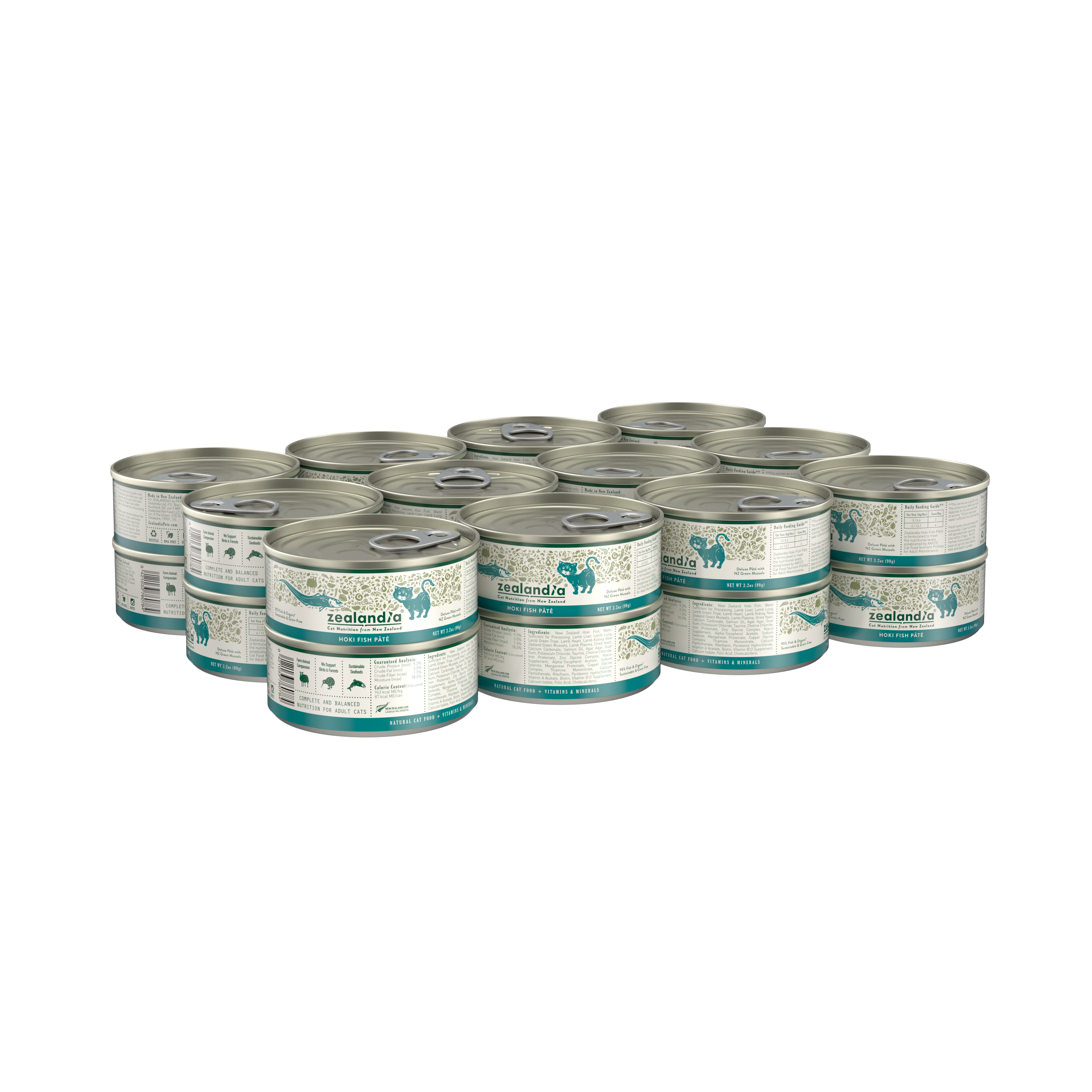
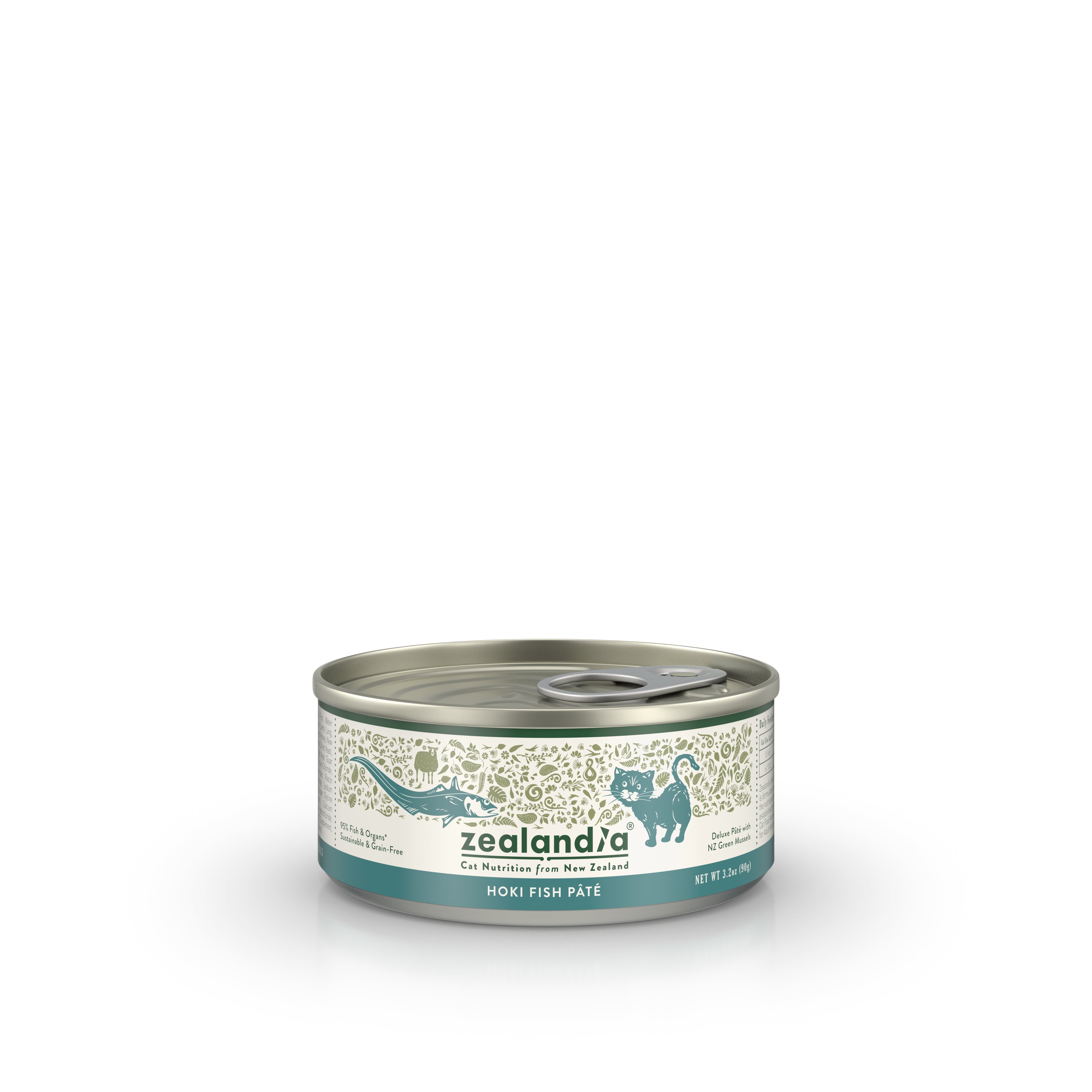
Zealandia Hoki Fish Pâté Wet Cat Food (USA) Exp. Mar-26
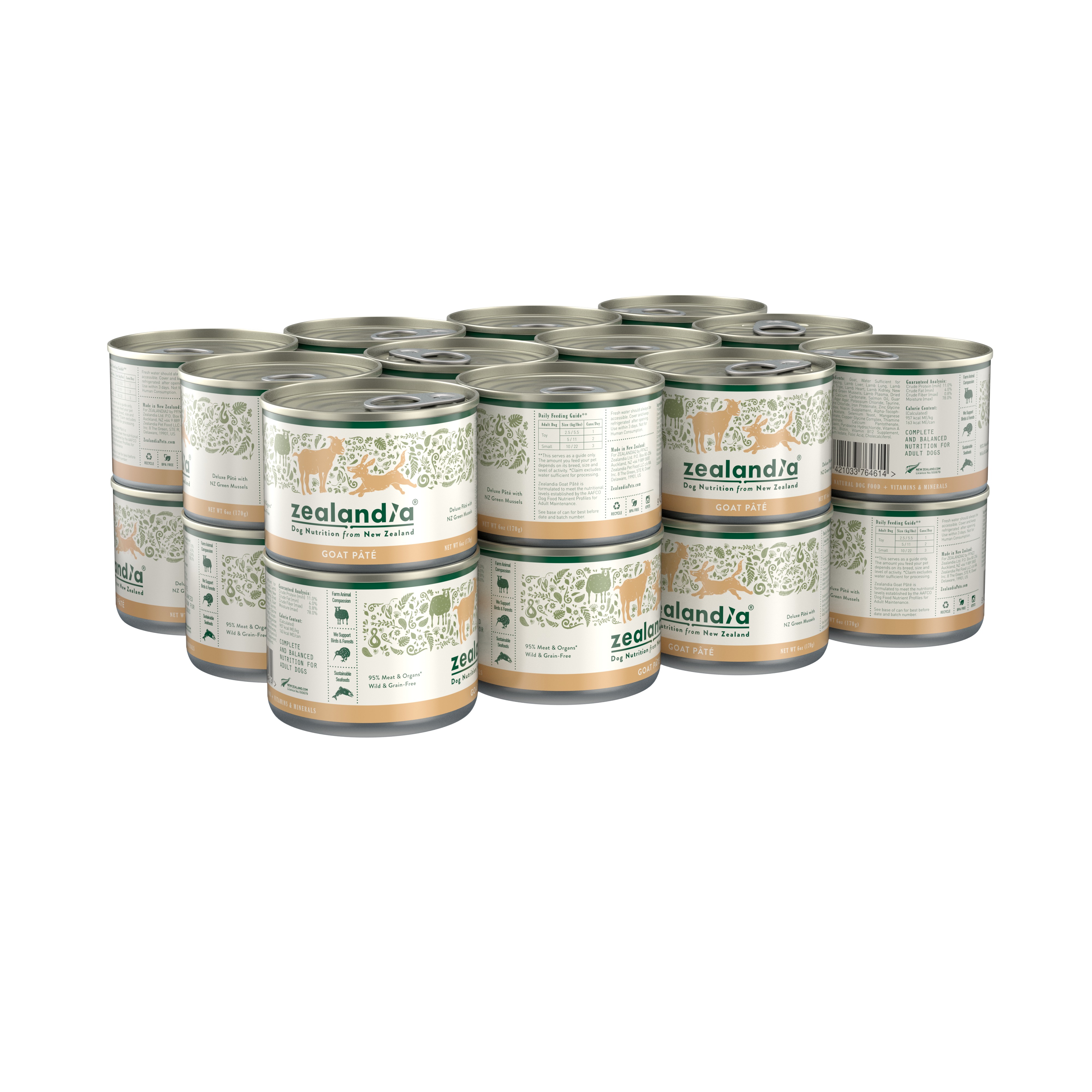
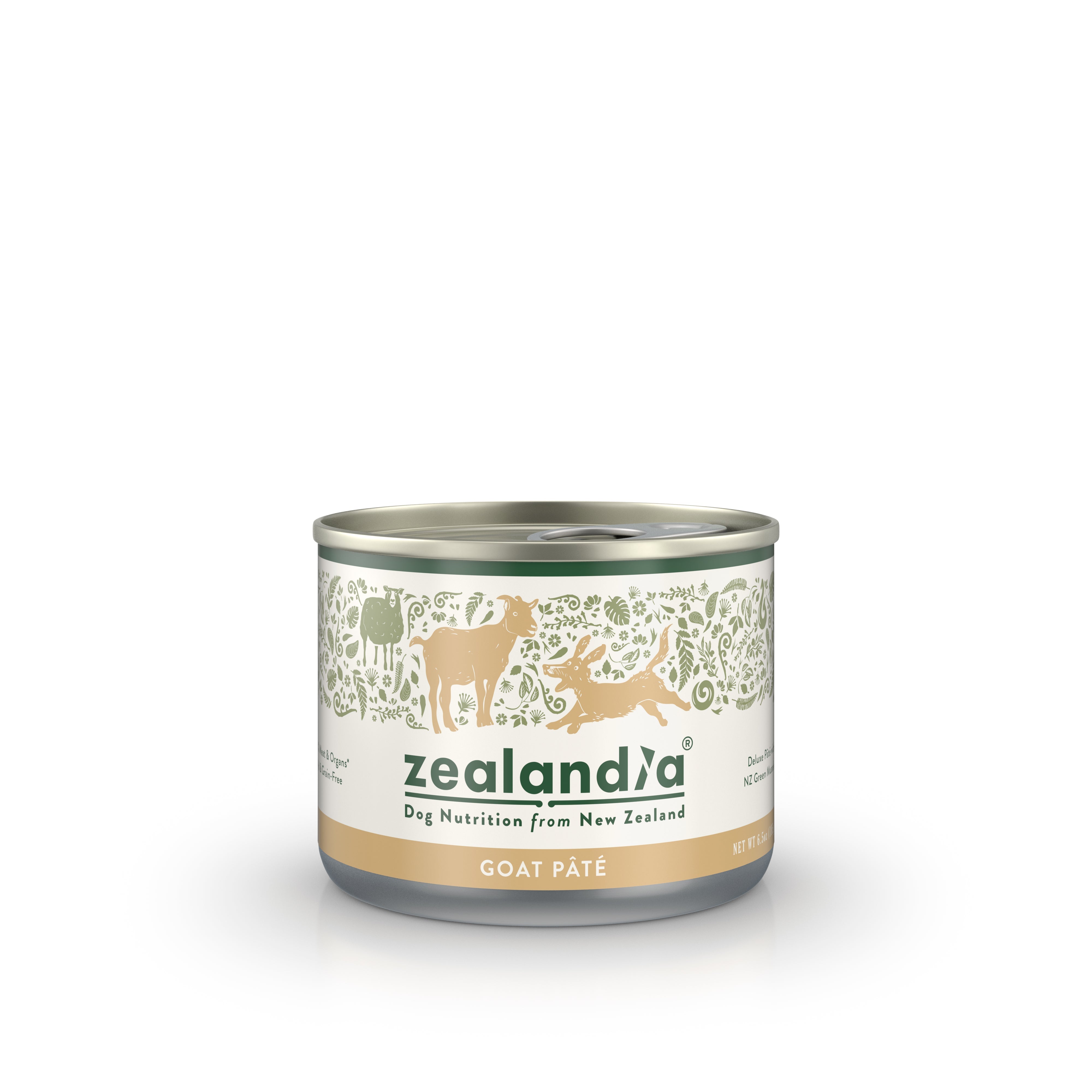
Zealandia Goat Pâté Wet Dog Food (USA)
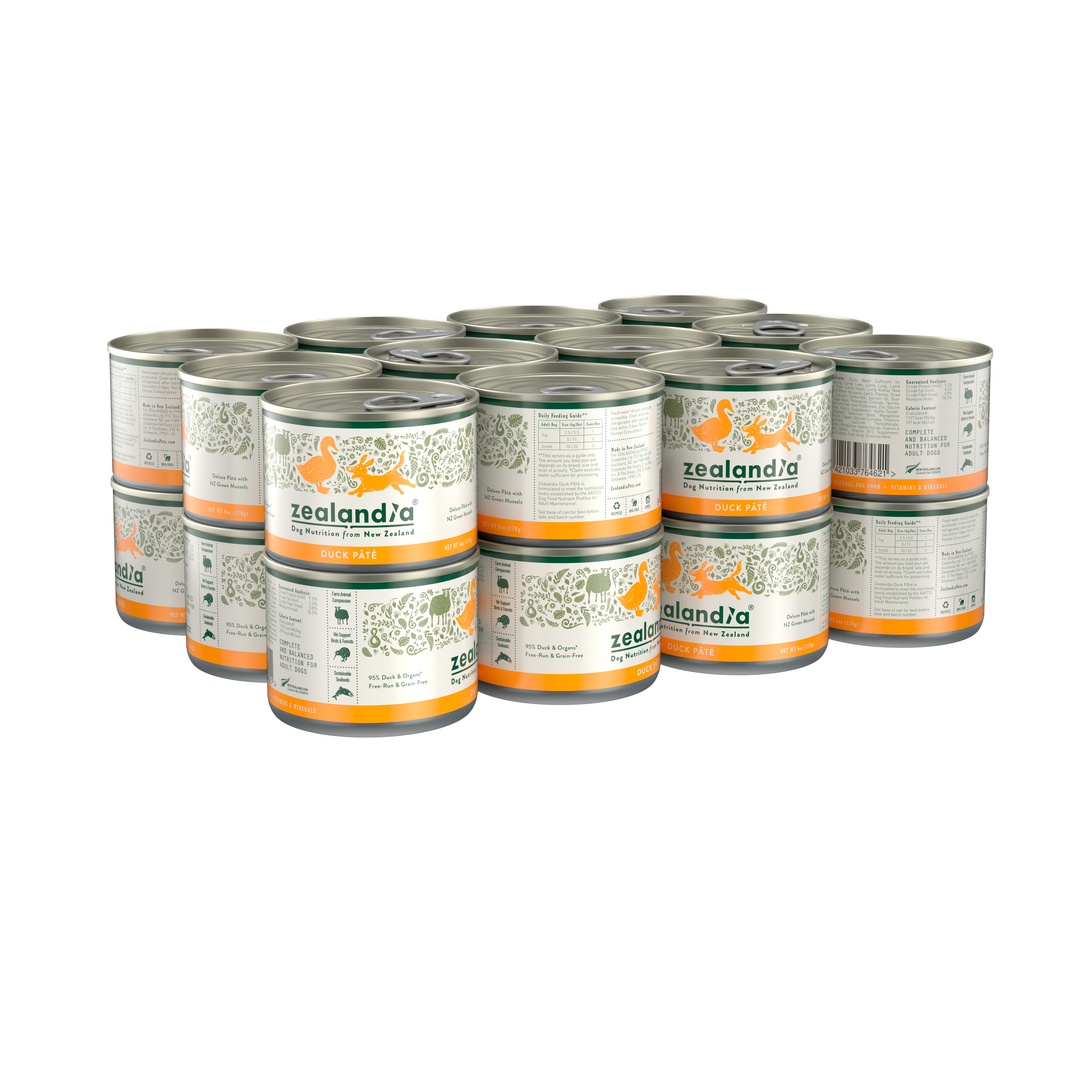
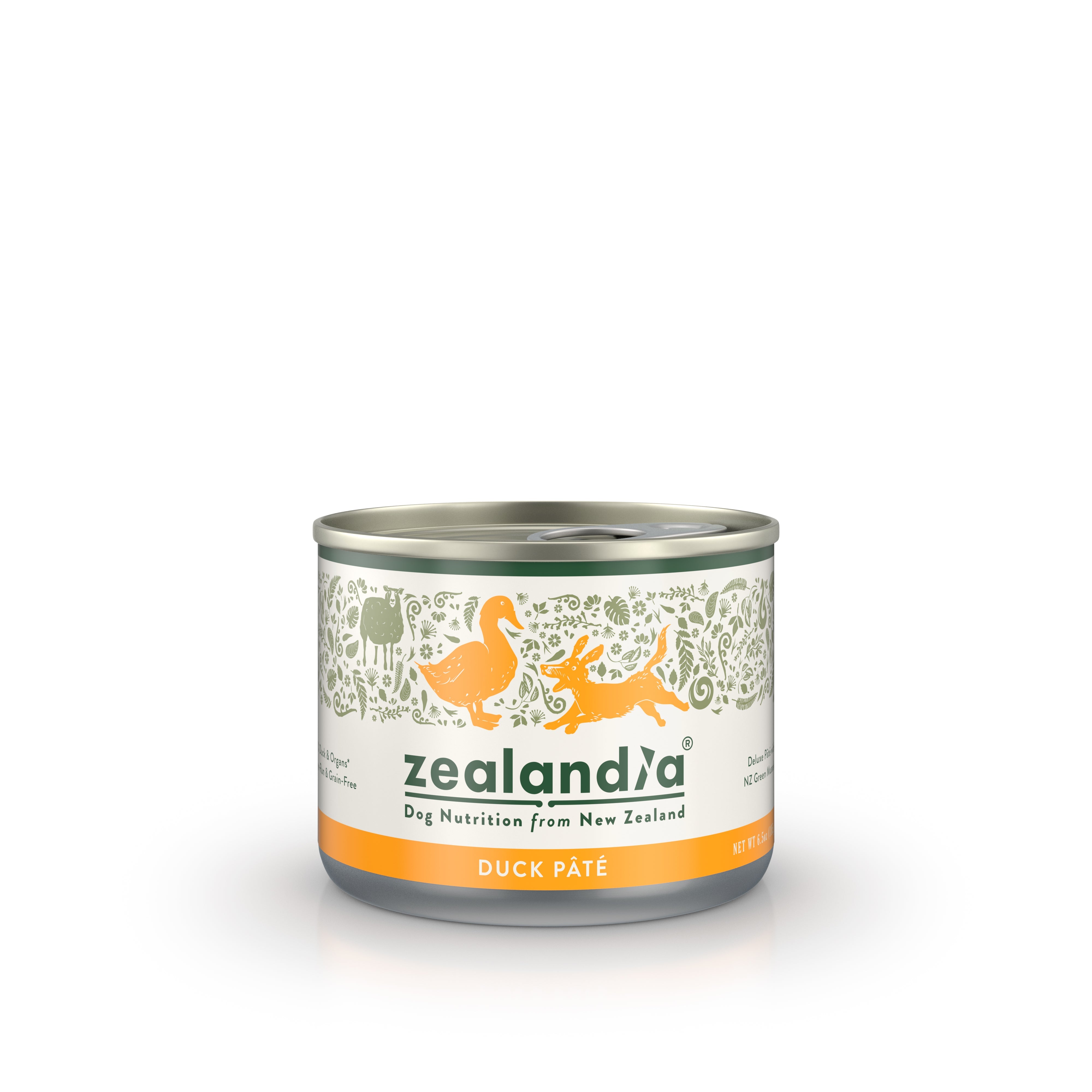
Zealandia Duck Pâté Wet Dog Food (USA)
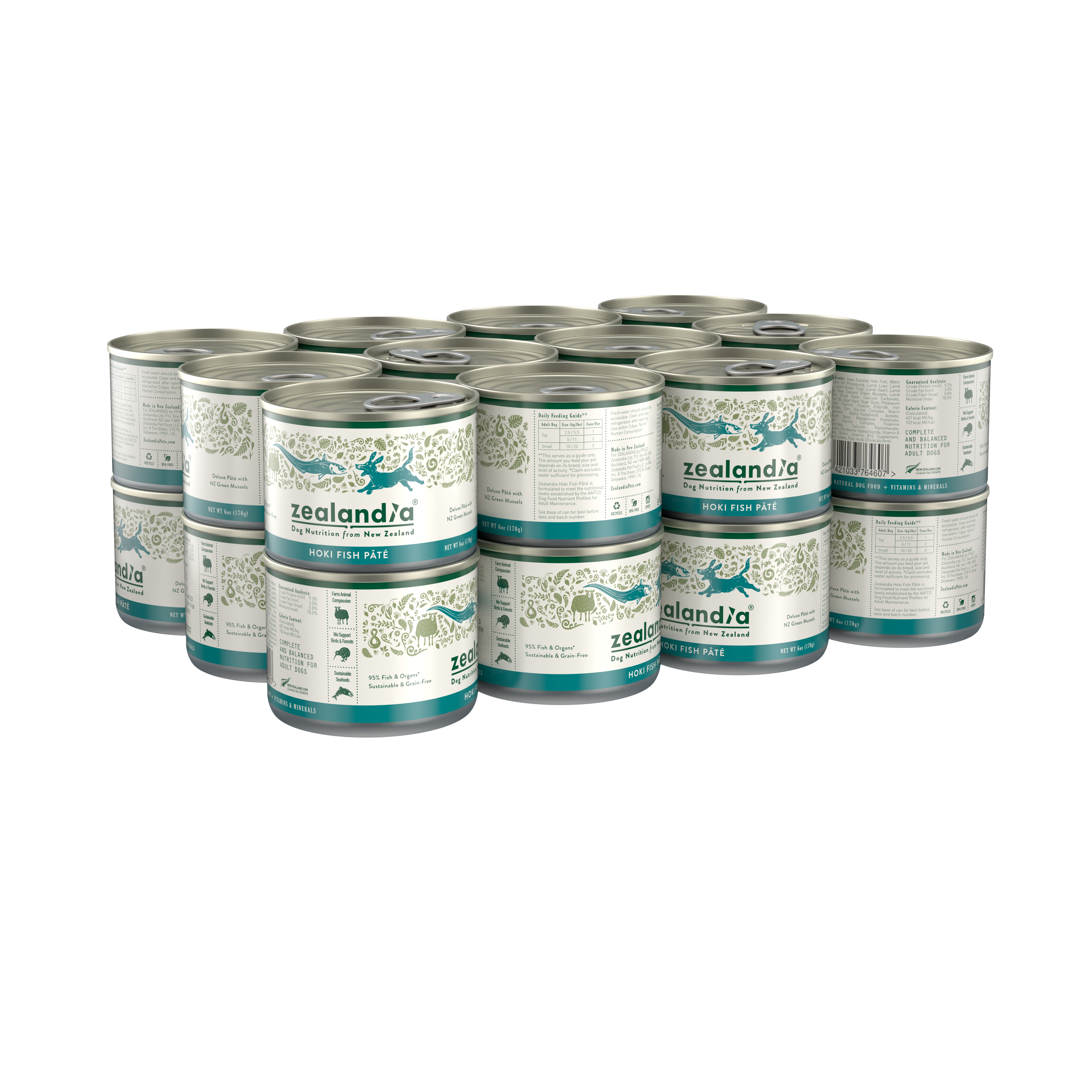

Zealandia Hoki Fish Pâté Wet Dog Food (USA)
